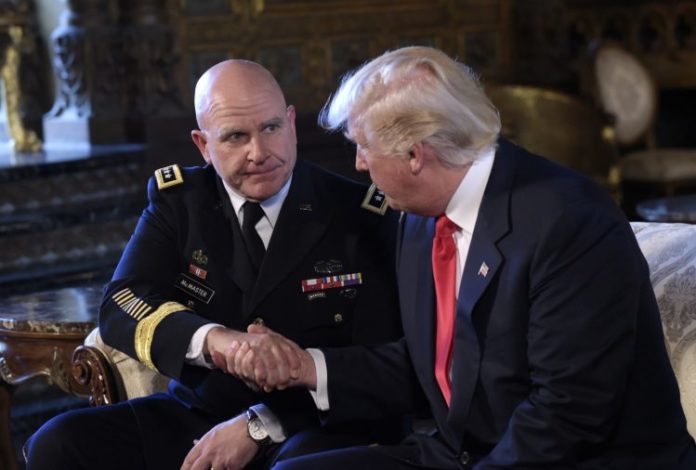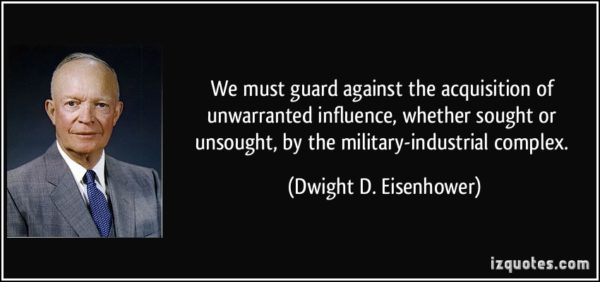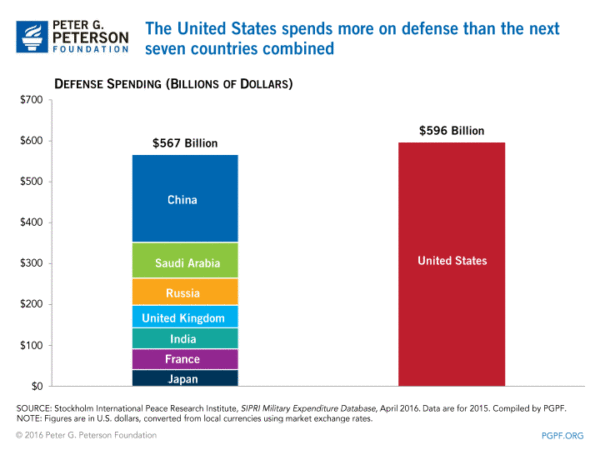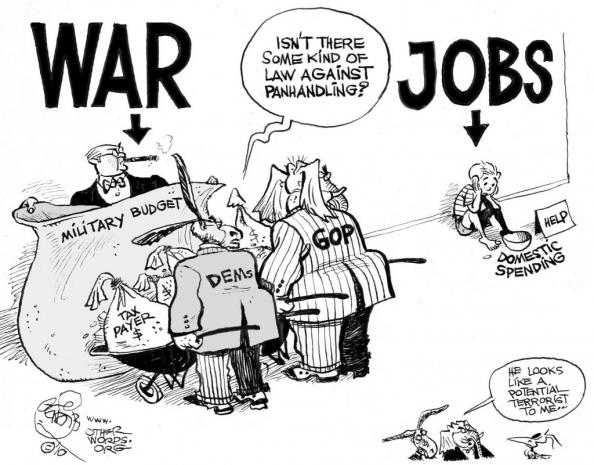
The Military Industrial Complex (MIC) is a term used to describe the informal alliance between a country’s military and the arms industry (defense companies) which supplies it, seen together as a vested interest that influences public policy or governments.
A driving factor behind the government-defense relationship is that both sides benefit. The government buys war weapons manufactured by the companies. The companies in turn use part of the money received to pay lobbyists, government officials, senior military staff, and politicians who helped them secure the deal from the government.
In the end, tax payers’ monies are wasted on useless defense spending. The corrupt few elite enjoy the high life at the expense of the public. This is the cycle. Of course, the term MIC is often used in reference to the system behind the military of the United States.
The term gained popularity after the 34th President of the United States Dwight D. Eisenhower used it in his presidential farewell address to the country on January 17, 1961. In fact, President Eisenhower was a Five-Star General in the United States Army during World War II. He also served as Supreme Commander of the Allied Expeditionary Forces in Europe, making him the first Supreme Commander of NATO.
Eisenhower was therefore a guru in the war business, and he knew this industry well. Before leaving the Oval Office in Washington on January 17, 1961, Eisenhower said in a nationwide broadcast:
“A vital element in keeping the peace is our military establishment. Our arms must be mighty, ready for instant action, so that no potential aggressor may be tempted to risk his own destruction. This conjunction of an immense military establishment and a large arms industry is new in the American experience. The total influence—economic, political, even spiritual—is felt in every city, every statehouse, every office of the federal government. We recognize the imperative need for this development. Yet we must not fail to comprehend its grave implications. Our toil, resources and livelihood are all involved; so is the very structure of our society. In the councils of government, we must guard against the acquisition of unwarranted influence, whether sought or unsought, by the military–industrial complex. The potential for the disastrous rise of misplaced power exists, and will persist. We must never let the weight of this combination endanger our liberties or democratic processes. We should take nothing for granted. Only an alert and knowledgeable citizenry can compel the proper meshing of the huge industrial and military machinery of defense with our peaceful methods and goals so that security and liberty may prosper together.”
But despite Eisenhower’s warning, subsequent governments failed to guard against the acquisition of unwarranted influence, whether sought or unsought, by the military–industrial complex in the United States. The influence of the MIC was so great in successive governments that the country’s defense budget has skyrocketed. In 2011, for example, the United States spent more (in absolute numbers) on its military than the next 13 nations combined. Currently, it has dropped to the next 7 nations combined, with a budget of over half a trillion dollars dedicated to the MIC each year.
However, with these heavy financial burdens the MIC is placing on the United States, the newly appointed National Security Advisor to the current government, Herbert Raymond “H R” McMaster, has added his voice to that of Mr Eisenhower. McMaster, before taking up this new appointment from President Donald Trump, commanded troops in Iraq and Afghanistan, served at the United States Central Command at MacDill Air Force Base in Tampa, and earned a Silver Star Medal for battlefield heroics during the First Gulf War, along with obtaining a doctorate in military history from the University of North Carolina in Chapel Hill.
Particularly on his doctorate studies, McMaster’s thesis was critical of American strategy in the Vietnam War. He later detailed the thesis in his 1997 book titled “Dereliction of Duty: Johnson, McNamara, the Joint Chiefs of Staff, and the Lies That Led to Vietnam.”
Some of the chapters in the book include “From Distrust to Deceit,” “A Quicksand of Lies” and “War Without Direction.”
Ironically, McMaster concluded his thesis by stating that the Vietnam War was based on deception, and that it “was lost in Washington, D.C., even before Americans assumed sole responsibility for the fighting in 1965 and before they realized the country was at war; indeed, even before the first American units were deployed.”
This means McMaster is well aware of the deception in Washington that starts many of the wars the country has fought abroad.
Apart from McMaster’s thesis being critical of the damning ‘war machine’ in Washington, in 2015 McMaster openly criticized the MIC in a speech he delivered at the University of South Florida, warning about a “narcissistic approach to war” adopted by government and military cabals with vested interest in the country’s defense companies.
McMaster said in the speech that the MIC “increasingly involves think tanks, and when you see studies that are produced about the future of war or studies that are produced about certain aspects of defense strategy, you ought to look to see who is funding it.”
McMaster didn’t stop at vague generalities, but undauntedly provided details about how this corrupt war machine works via manufactured studies in order to be awarded government contracts:
“There is a think tank now, for example, that’s about to publish a report on the future of the Army, and it’s bankrolled by a defense firm whose business model is the integration of high technology capabilities and selling them to the Department of Defense. What do you think that answer is going to be?”
Of course, the think tank report showed that the army should adopt more technology because China and Russia are doing it. In the end, this so-called think-tank would receive money for its sponsor because the army would buy the technology from the company.
“The future course of war doesn’t depend on what you like to do,” McMaster added, alluding to private contractors who see the State as a source of easy money at the expense of American lives. Rather, the future of war will revolve around real defense. “It depends on enemy initiatives and enemy reactions.”
McMaster concluded by urging the United States to take on a more adaptive and defensive approach to war, rather than aggressive expansionism and opting-out which led to the creation of the so-called Islamic States of Iraq and Syria (ISIS).
It is our hope that McMaster will stick to his ideas as he assumes one of the most sensitive positions currently on Earth. If he succeeds in keeping the influence of the MIC from the Trump administration, the significant milestone achievement for peace worldwide would become undisputed.
We acknowledge sourcing part of the article from Living Resistance.
This article (Trump’s New National Security Advisor Warns: “The Military Industrial Complex is an Enemy Within”) is a free and open source. You have permission to republish this article under a Creative Commons license with attribution to the author and AnonHQ.com.
Supporting Anonymous’ Independent & Investigative News is important to us. Please, follow us on Twitter: Follow @AnonymousNewsHQ












